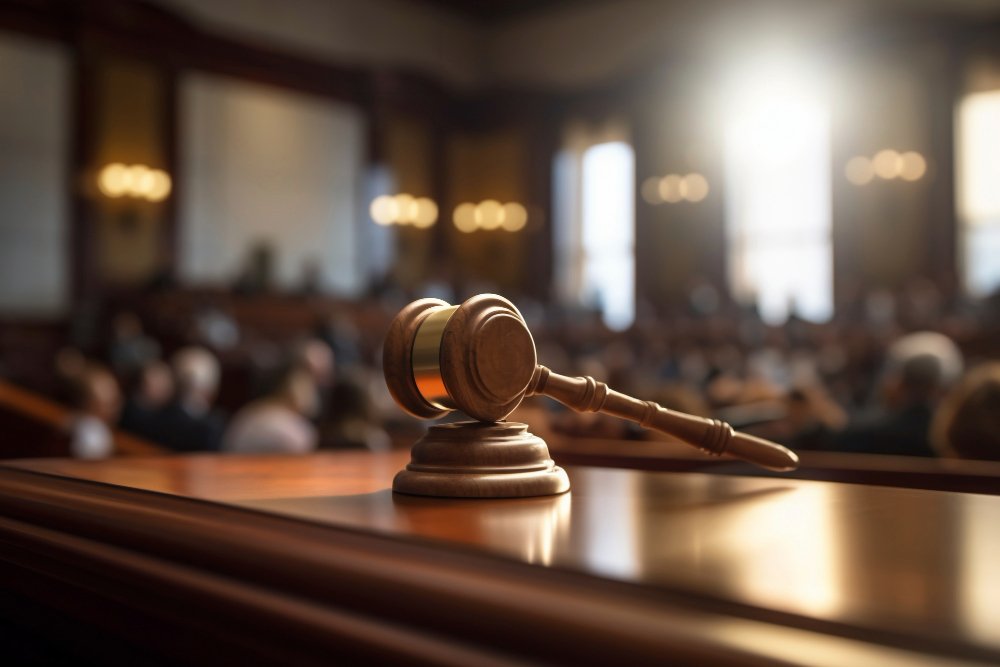The Role Of Attorneys In Upholding Justice And Human Rights
In a world striving for justice and equality, the United Nations Charter and several international declarations and covenants underscore the universal commitment to uphold human rights and fundamental freedoms. Central to achieving this goal is the role of attorneys, who are instrumental in ensuring legal representation, fairness, and access to justice for all, irrespective of race, sex, language, or religion.
The Foundation of Equality and Legal Representation
The Universal Declaration of Human Rights lays the groundwork for equality before the law and emphasizes the necessity of legal representation for a fair trial. It establishes the presumption of innocence and the right to a fair and public hearing by an impartial tribunal, ensuring all individuals charged with a penal offense receive the necessary defenses.
Ensuring Timely and Competent Trials
The International Covenant on Civil and Political Rights advocates for the right to be tried without delay. It calls for a fair and public hearing by a competent, independent, and impartial tribunal, ensuring the legal process is both efficient and just.
Economic, Social and Cultural Rights
Complementing civil and political safeguards, the International Covenant on Economic, Social, and Cultural Rights reminds states of their obligation to foster respect for human rights and freedoms. This includes ensuring economic, social, and cultural rights are protected with the same zeal as civil liberties.
Legal Assistance and Detainee Rights
Recognizing the vulnerability of detainees, international principles demand that individuals under any form of detention have the right to legal counsel. This is crucial for maintaining the integrity of the justice system and ensuring detainees' rights are respected.
Advocacy for Untried Prisoners and Death Penalty Safeguards
Specific guidelines recommend legal assistance for untried prisoners and those facing capital punishment. Adequate legal support at all stages of the proceedings is vital for ensuring fairness and upholding the right to life.
Victim Support and Compensation
The Declaration of Basic Principles of Justice for Victims of Crime and Abuse of Power highlights the importance of access to justice for victims. It recommends measures for fair treatment, restitution, compensation, and assistance, emphasizing the role of attorneys in advocating for victims' rights.
The Independent Legal Profession
The cornerstone of protecting human rights and fundamental freedoms lies in an independent legal profession. Attorneys play a critical role in providing legal services to those in need, upholding professional standards, and cooperating with various institutions to further justice and public interest.
Professional Associations and Ethical Standards
Professional associations of lawyers are pivotal in maintaining ethical standards, protecting members from persecution, and ensuring legal services are accessible to all. Their cooperation with governmental and other institutions is essential in advancing justice and the public good.
Ensuring Universal Access to Legal Representation
Right to Legal Assistance: Every individual has the fundamental right to seek the assistance of an attorney of their choice to protect their rights and defend them at all stages of criminal proceedings.
Equal Access to Attorneys: It is imperative for governments to establish efficient and fair processes, ensuring all individuals, irrespective of background or status, have equal access to legal representation. This commitment extends to eradicating any form of discrimination in accessing legal services.
Support for the Disadvantaged: Governments must allocate adequate funding and resources to ensure the poor and disadvantaged have access to necessary legal services. This involves collaboration with professional lawyer associations to organize and provide essential legal aid.
Public Awareness and Support: Both governments and lawyer associations should actively engage in public education campaigns about legal rights and the critical role of attorneys in safeguarding freedoms. Special efforts should be made to reach and assist the economically or socially disadvantaged, ensuring they can effectively exercise their rights with professional legal support.
Critical Legal Protections in Criminal Proceedings
Immediate Notification of Rights: Upon arrest, detention, or criminal charge, individuals must be promptly informed of their right to choose and be assisted by an attorney, ensuring they are aware of their legal protections from the outset.
Access to Competent Legal Representation: If a person cannot afford an attorney, the justice system is obligated to provide one with the necessary experience and competence relative to the offense. This is crucial for maintaining the integrity of justice, particularly in cases where legal representation is essential.
Prompt Access to Legal Counsel: Governments are tasked with guaranteeing that anyone arrested or detained has swift access to an attorney, ideally within 48 hours from their arrest or detention, to ensure their rights are immediately protected.
Confidential Communication: Individuals under arrest, detention, or imprisonment must have ample opportunity to meet and consult with their attorney confidentially, without any form of surveillance that could compromise their legal defense. This ensures a fair and just legal process by upholding the principle of confidentiality between an attorney and their client.
Fostering Diversity and Excellence in Legal Education
Commitment to Attorney Education and Ethics
Governments, law associations, and educational bodies are tasked with ensuring that attorneys receive the necessary education and training. This foundation not only covers legal knowledge but also instills the ethical responsibilities and human rights principles essential for legal practice. Such an approach prepares attorneys to serve with integrity and uphold justice.
Equality in the Legal Profession
The legal field must be open to all, devoid of discrimination based on personal attributes or social status. However, requiring attorneys to be nationals of their practicing country is accepted. This policy ensures a diverse and inclusive environment where meritocracy and fairness prevail.
Supporting Underrepresented Groups
Special attention is given to aiding groups underserved by legal services, especially those with unique cultural or linguistic traits or a history of discrimination. Initiatives to encourage individuals from these communities to pursue legal careers, coupled with tailored training programs, aim to meet their specific needs and enrich the profession's diversity.
Ethical Responsibilities of Attorneys
Upholding Professional Integrity
Attorneys are fundamental to justice administration, obligated to preserve the honor and dignity of their profession consistently. This commitment ensures trust and respect within the legal system and society.
Client-Centric Duties
Attorneys have a paramount duty to:
Inform clients about their legal rights, obligations, and the legal system's workings as they pertain to their cases.
Support clients in all suitable manners, including initiating legal actions to safeguard their interests.
Represent clients in legal proceedings before courts, tribunals, or administrative bodies when necessary.
Advocacy and Human Rights
In their advocacy, attorneys are charged with protecting clients' rights and advancing justice, always striving to uphold human rights and fundamental freedoms. Their practice must align with legal standards, professional ethics, and diligent, unbiased action.
Client Loyalty
A core principle of legal practice is unwavering loyalty to clients' interests, ensuring attorneys act with integrity and dedication to those they serve.
Safeguarding the Rights and Safety of Attorneys
Professional Freedom and Security
Governments are tasked with ensuring that attorneys can carry out their professional duties free from intimidation, obstacles, or undue interference. This includes the freedom to travel and consult with clients, both domestically and internationally, without facing threats of legal or administrative repercussions for actions taken within their professional capacity.
Protection Against Reprisals
Authorities must provide adequate protection to attorneys whose security is jeopardized by their professional activities. This safeguarding is essential for maintaining the integrity of the legal system and ensuring lawyers can serve their clients without fear of personal harm.
Preserving Professional Independence
An attorney's representation of a client does not equate to endorsing the client's views or actions. It's critical that lawyers are not wrongfully associated with their clients' causes, ensuring their role as impartial advocates is respected.
Recognition and Immunity
Courts and administrative bodies must not deny an attorney's right to represent their client, except in cases where the attorney has been legitimately disqualified according to national standards. Moreover, attorneys should be granted immunity for statements made in good faith during legal proceedings, protecting them from civil or penal sanctions.
Access to Information
Competent authorities have a duty to provide attorneys with timely access to necessary information, files, and documents to facilitate effective legal assistance. This access should be granted promptly to ensure adequate preparation for client representation.
Client-Attorney Confidentiality
The confidentiality of communications between attorneys and their clients is paramount and must be respected by governments. This principle is fundamental to the trust that underpins the attorney-client relationship and is essential for the effective practice of law.
Advocacy and Unity - The Cornerstones of Legal Practice
Lawyers' Rights to Expression and Association
Attorneys, akin to all citizens, are guaranteed the freedom of expression, belief, association, and assembly. They possess the unequivocal right to engage in public discourse on legal matters, justice administration, and human rights advocacy. Furthermore, attorneys are free to join or establish organizations at local, national, or international levels, participating in their activities without facing professional penalties for their lawful actions or affiliations. When exercising these freedoms, attorneys must adhere to legal standards and the ethical codes of the legal profession.
Empowering Legal Practice through Professional Associations
Autonomy and Self-Governance
Attorneys have the right to establish and join independent professional associations that safeguard their interests, foster ongoing education, and uphold the integrity of their profession. These organizations should be self-governing, with leadership elected by their members, ensuring operations are free from external influences.
Collaboration for Accessible Legal Services
Professional associations are encouraged to collaborate with governments to guarantee universal and equitable access to legal services. This partnership aims to ensure that attorneys can offer counsel and assistance to their clients without undue interference, adhering strictly to legal standards and ethical practices.
This model promotes a legal profession that is both responsive to the needs of society and protective of its practitioners, enhancing the quality and accessibility of legal representation.
Upholding Legal Ethics - The Framework for Disciplinary Proceedings
Establishing Professional Conduct Codes
It's essential for the legal profession, through its governing bodies or legislative action, to develop codes of conduct for attorneys. These codes should align with national customs, laws, and international standards, ensuring attorneys operate within a framework of recognized ethical guidelines.
Fair and Expedient Complaint Handling
Any complaints or charges against attorneys related to their professional conduct must be addressed promptly and impartially. Attorneys are entitled to a fair hearing. This includes the right to be represented by a lawyer of their choosing to ensure justice and fairness in the proceedings.
Disciplinary Committee and Independent Review
Disciplinary actions should be adjudicated by an impartial committee established explicitly within the legal profession, an independent statutory authority, or a court. Furthermore, such proceedings are subject to independent judicial review to guarantee fairness and adherence to professional ethics.
Adherence to Professional Standards
The outcome of disciplinary proceedings must be consistent with the legal profession's code of conduct and ethical standards. This approach ensures that all actions taken are grounded in the principles of justice and professional integrity, reinforcing the legal community's commitment to ethical practice.
Legal Rights and Duties Explained by Experts
Looking for a dedicated attorney in Shawnee to navigate your legal needs? The West Law Firm stands ready to champion your rights and ensure justice is served. Our team of experienced attorneys is committed to upholding the highest standards of integrity and professionalism. Contact us today to secure the legal representation you deserve and join our community of satisfied clients who trust us to protect their interests.
** Disclaimer: The above article does not imply a relationship between attorney and client, nor is it legal advice.

